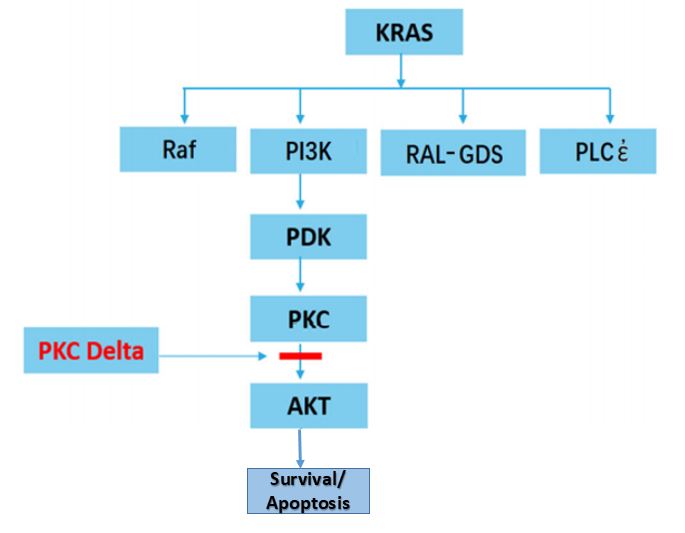Oncogenic activation of K-ras occurs commonly in non–small cell lung cancer (NSCLC), but strategies to therapeutically target this pathway have been challenging to develop.
We reported that PKCdelta functions as a critical anti-apoptotic signal transducer in cells containing activated p21(Ras) and results in the activation of AKT, thereby promoting cell survival. We also showed that PKCdelta, as a transducer of anti-apoptotic signals, is activated by phosphotidylinositol 3′ kinase/phosphoinositide-dependent kinase 1 (PI(3)K-PDK1) to deliver the survival signal to Akt in the environment of activated p21(Ras). PDK1 is upregulated in cells containing an activated p21Ras. Knock-down of PDK1, PKCdelta, or AKT forces cells containing activated p21(Ras) to undergo apoptosis. p21(Ras)-mediated survival signaling is therefore regulated by via a PI(3)K-AKT pathway, which is dependent upon both PDK1 and PKCdelta, and PDK1 activates and regulates PKCdelta to determine the fate of cells containing a mutated, activated p21(Ras).

